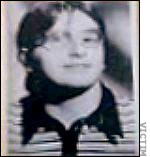 |
| City of Auxerre & Yonne River |
Christian Jambert was almost certain he knew who was behind Burgundy's rash of murders and missing person cases, and he was convinced that Louis was one of the primary culprits. However, he also believed that Louis was only one of many involved in the crimes. Jambert kept meticulous notes and diaries concerning the cases, along with the evidence he collected over the years. In 1997, he made preparations to present his findings during a new inquiry. Yet, he never got the chance to reveal what he worked so hard to acquire.
In August of that year, just several days before the inquiries were scheduled to begin, Jambert was found dead in the basement of his Auxerre home. An autopsy revealed that he died from a single gunshot wound to the head. Medical investigators claimed that Jambert had a history of depression. It was believed that his poor mental state prompted him to end his life. His death was listed as a suicide.
 |
| Marylise Lebranchu |
By the late 1990s, the mounting scandal in Auxerre gained international attention. People were shocked by the negligence exhibited in the investigations and the fact that more than 100 files, mostly of missing women, had gone missing from Auxerre's Courthouse. According to Harry de Quetteville's January 2002 article in
The Telegraph, the scandal was "taken so seriously in
Paris that Marylise Lebranchu, the French justice minister, ordered a series of internal investigations." Joanna's murder case was one of those selected for re-examination and it was further linked with the inquiry into the seven girls Louis once claimed to have murdered.
Not surprisingly, Joanna's parents welcomed the decision of a new inquiry. They waited more than a decade for her investigation to be reopened. BBC News Online stated that Roger, "was hopeful there would be progress in the investigation and the potential capture of the killer."
Investigators working on the case quickly realized that there was a possibility someone tampered with Joanna's murder file. Witness statements, which were obtained at the time of her murder, were missing from her dossier. Moreover, important DNA evidence taken during the autopsy also disappeared from the file for more than a decade before it was found again.
 |
| Madeline Dejust, victim |
During the investigation, it was suggested that Joanne and many of the other girls that were murdered or missing were likely the victims of an organized sex gang operating around Auxerre. Yet, because so many of the facts were missing, there was not enough evidence available to convict anyone.
The only exception was the case of the seven missing girls Louis initially claimed to have murdered before retracting his confession. Investigators continued to believe he was involved in their disappearances and murders. A re-examination of his case was ordered, with the hope of uncovering more evidence linking Louis or anyone else to the girls.
 |
| Seven missing girls, victims |
Many in the community believed that the murder cases were deliberately ignored and the files stolen or destroyed because they implicated high-level officials. Investigators re-examining the cases determined that it was more likely that gross negligence on behalf of local magistrates was to blame for the mishandling of the cases. In all likelihood, it was probably a combination of both theories that prevented anyone from being apprehended for the crimes.
In March 2002, four magistrates from Burgundy faced accusations of gross negligence in the cases of missing and murdered women in their region. The judges included former chief prosecutors Rene Meyer and Jacques Cazals and former deputy prosecutors Daniel Stilinovic and Bertrand Daillie. The men were ordered to appear before a panel of six senior judges, who would review the cases over a three-day period.
According to a 2002 article by Susan Bell in The Scotsman, accused magistrate Stilinovic admitted that "there were people who allowed information to be stifled." He was further quoted saying "magistrates tampered with procedures on behalf of people they wanted to protect. It is a conspiracy at the very top." However, he maintained his innocence, suggesting that he did not stifle any of the investigations. His peers thought otherwise.
 |
| Note from Stilinovic, evidence |
The panel returned a verdict in late March and found Stilinovic guilty of negligence. He received the severest penalty and was dismissed from his position. Cazals was also found guilty and transferred from his prestigious post in Paris. Meyer, who was retired at the time of the inquiry, was stripped of his honorary title after he too was found guilty. Daillie received no punishment.
